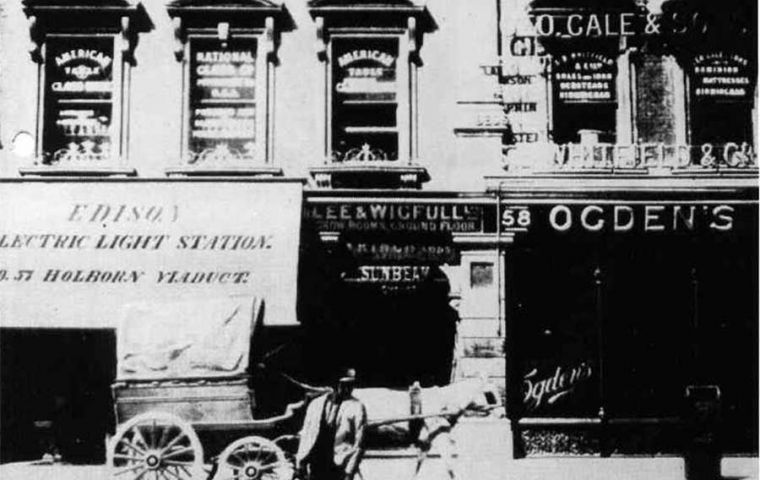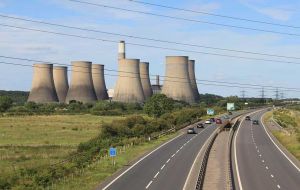MercoPress. South Atlantic News Agency
UK “green milestone”, the last power station fueled by coal has finished
 The first coal-fired power station in the world, the Holborn Viaduct plant was built in 1882 in London by Thomas Edison - bringing light to the streets of the capital.
The first coal-fired power station in the world, the Holborn Viaduct plant was built in 1882 in London by Thomas Edison - bringing light to the streets of the capital. UK's last coal power station, at Ratcliffe-on-Soar, finished operations on Monday September 30th, after running since 1967 and ending 142 years of reliance on the fossil fuel. The milestone is a major event in UK's ambitions to reduce its contribution to climate change. Coal is the dirtiest fossil fuel producing the most greenhouse gases when burnt.
Minister for Energy Michael Shanks said: “We owe generations a debt of gratitude as a country.”
UK was the birthplace of coal power, and coal the engine for the industrial revolution.
“It's a really remarkable day, because Britain, after all, built her whole strength on coal, that is the industrial revolution,” said Lord Deben - the longest serving environment secretary.
The first coal-fired power station in the world, the Holborn Viaduct power station, was built in 1882 in London by the inventor Thomas Edison - bringing light to the streets of the capital.
From that point through the first half of the twentieth century, coal provided pretty much all of the UK’s electricity, powering homes and businesses.
In the early 1990s, coal began to be forced out of the electricity mix by gas, but coal still remained a crucial component of the UK grid for the next two decades. In 2012, it still generated 39% of the UK’s power.
In 2008, the UK established its first legally binding climate targets and in 2015 the then-energy and climate change secretary, Amber Rudd, told the world the UK would be ending its use of coal power within the next decade.
Dave Jones, director of global insights at Ember, an independent energy think tank, said this really helped to “set in motion” the end of coal by providing a clear direction of travel for the industry.
But it also showed leadership and set a benchmark for other countries to follow, according to Lord Deben.
“I think it's made a big difference, because you need someone to point to and say, 'There, they've done it. Why can't we do it?'”, he said.
In 2010, renewables generated just 7% of the UK’s power. By the first half of 2024, this had grown to more than 50% - a new record.
The rapid growth of green power meant that coal could even be switched off completely for short periods, with the first coal-free days in 2017.





Top Comments
Disclaimer & comment rulesCommenting for this story is now closed.
If you have a Facebook account, become a fan and comment on our Facebook Page!